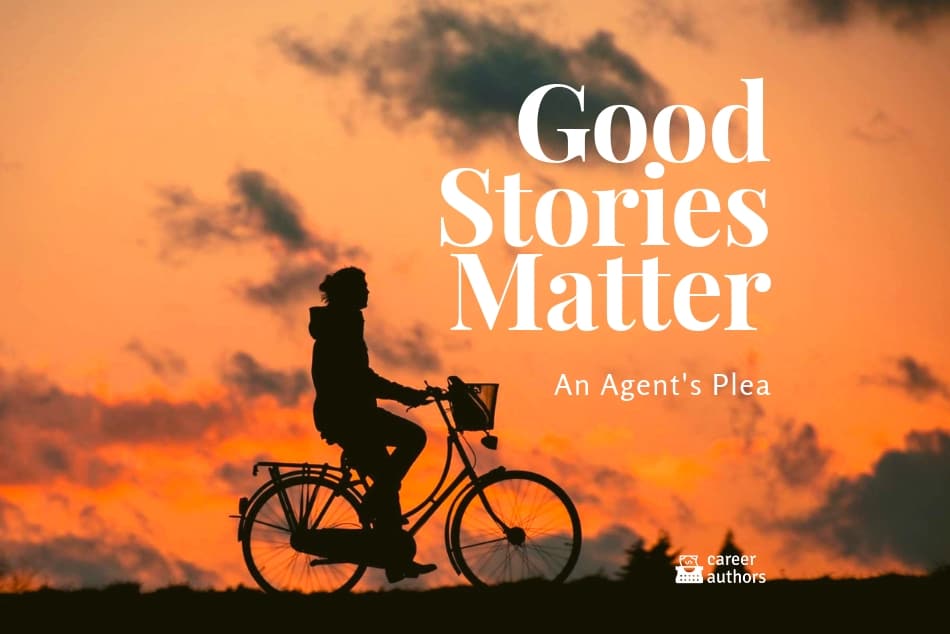We tell ourselves stories in order to live.
—Joan Didion
It’s a tough time to be a writer. And I’m not talking about the usual vagaries of the book business or the ups and downs of retail or the rise and fall of indies and chains and imprints and houses, I’m talking about the emotional toll today’s world at large is taking on artists.
Lately I spend way too much time pulling writers “back from the brink” as one of my clients put it just this morning. In a landscape that seems more polarized than ever, it’s harder than ever for writers to believe that their stories, however wonderful, can find an audience. That their stories will be heard above all the noise and nonsense in the universe right now.
That their stories will matter.
Yet the worst thing we can do as writers is let the highly politicized world we now live in keep us from writing good stories. The world needs good stories now more than ever. Because good stories matter. And without storytellers there are no good stories.
Stories have to be told or they die, and when they die, we can’t remember who we are or why we’re here.
—Sue Monk Kidd
Last week at an author event at the Boston Public Library a gentleman asked our panel of writers—Hank Phillippi Ryan, Peter Swanson, Kellye Garrett, Caroline Linden, and moi—a question that gave us all pause: From the 30,000-foot top-down view, why do you write? What are your stories really about?”
None of us said anything for a moment, because this was A Big Question and one that none of us had been asked before in quite that way and that none of us wanted to answer badly. Fool that I am, I blundered in first with this:
Stories—reading them, writing them, talking about them—make me feel better about being human. And although this is just occurring to me now as I ponder this question, what I write about is service. The service of working dogs and their handlers, first responders who run toward trouble instead of away from it, game wardens fighting to preserve our forests and our wildlife, search-and-rescue volunteers and our men and women in the military and EMTs and firefighters and the list goes on and on. They make me feel better about being human, too.
Write the stories that make you feel better about being human.
They’ll make the rest of us feel better about being human, too. And they may even make us be better humans.
The human species thinks in metaphors and learns through stories.
—Mary Catherine Bateson
When I was a young writer I took a screenwriting workshop—so long ago I’ve forgotten the name of the guy who ran it—and I can’t recall much about it except one thing. The guy who ran it said this: “When people talk about writing, they say, ‘Well, it’s not brain surgery.’ And no, it’s not brain surgery. It’s more important than that.”
Keep on writing. Because storytelling is not brain surgery. It’s more important than that.





